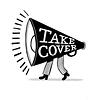Take a photo of a barcode or cover
This book is about the rise and fall of the New Hollywood and, at the same time, is about lessons on how to survive when changes occur in the film industry.
The first lesson is: don't destroy the good relationships you have with your family, especially if they support and work with you on your projects. Peter Bogdanovich can be the best example in this case, because one of the reasons for his success was his wife, Polly Platt. When Bogdanovic's producer asked him if he had an idea for a film, she suggested to them Larry McMurtry's novel The Last Picture Show, and the rest is history. Then he started to have an affair with the star of his film, Cybil Shepherd, during film production. Peter and Polly separated but still worked with each other. He had a good run during that period, until Polly finally decided to break up with him creatively. Since then, he hasn't made a movie that was a hit.
The second most important thing is to focus on your field first, strengthen it, and then move to other categories. Francis Ford Coppola can be a good example. The man knew he was good at adapting others works to the screen but hated that and tried to write original scripts that didn't succeed as he hoped. I don't blame him on that one, but I blame him for trying to be a producer on top of writing and directing his movies; it was a bit too early to do so. I know that he wanted total control over his movies, but he still chose to do it the wrong way. I hope his upcoming film Megalopolis is not a repetition of what happened last time, but the writing is on the wall. I wish he'd do something different this time, so we could experience a wonderful movie.
The last one I can think of is to avoid drugs; don't ruin yourself. For this one, you can fix it by quitting the drugs or the addiction that you are suffering from as soon as possible. Scorsese is a good example in this case. He suffered from drug abuse for many years, until he was on the verge of death. He survived and then managed to turn his career around. It took him a decade, but at least he continued to work on what he enjoyed doing.
The first lesson is: don't destroy the good relationships you have with your family, especially if they support and work with you on your projects. Peter Bogdanovich can be the best example in this case, because one of the reasons for his success was his wife, Polly Platt. When Bogdanovic's producer asked him if he had an idea for a film, she suggested to them Larry McMurtry's novel The Last Picture Show, and the rest is history. Then he started to have an affair with the star of his film, Cybil Shepherd, during film production. Peter and Polly separated but still worked with each other. He had a good run during that period, until Polly finally decided to break up with him creatively. Since then, he hasn't made a movie that was a hit.
The second most important thing is to focus on your field first, strengthen it, and then move to other categories. Francis Ford Coppola can be a good example. The man knew he was good at adapting others works to the screen but hated that and tried to write original scripts that didn't succeed as he hoped. I don't blame him on that one, but I blame him for trying to be a producer on top of writing and directing his movies; it was a bit too early to do so. I know that he wanted total control over his movies, but he still chose to do it the wrong way. I hope his upcoming film Megalopolis is not a repetition of what happened last time, but the writing is on the wall. I wish he'd do something different this time, so we could experience a wonderful movie.
The last one I can think of is to avoid drugs; don't ruin yourself. For this one, you can fix it by quitting the drugs or the addiction that you are suffering from as soon as possible. Scorsese is a good example in this case. He suffered from drug abuse for many years, until he was on the verge of death. He survived and then managed to turn his career around. It took him a decade, but at least he continued to work on what he enjoyed doing.
Super juicy, riveting read about the golden days of the New Hollywood in the '60s and '70s. I had already been watching a bunch of movies from that period during the pandemic, but this book inspired me to read anymore; the context and color it gives to them is fascinating. Credit to Peter Biskind as a journalist for interviewing everyone he possibly could, including the ex-wives and mistreated girlfriends of these iconic directors — which is almost certainly why all those directors despise this book. I wonder if their furor is what inspired the new media status quo where accounts like this are almost exclusively packaged as "oral histories" consisting of block quotes from each source, so nobody can claim that their words were taken out of context. Biskind's style of weaving multiple quotes and segments of quotes into a prose narrative may be riskier, but makes for a much more enjoyable reading experience.
challenging
funny
informative
fast-paced
At this point, Biskind's Easy Riders, Raging Bulls is a seminal work of film journalism that's necessary reading for any fan of American art cinema. Re-reading this for the first time since film school, I was struck by how pretentious, petty, and narcissistic so many highly respected directors were during the 70s. In its descriptions of the on- and off-set behaviours of Ashby, Schrader, Coppola, Hopper, and Scorsese (to name just a few), it is a warts-and-all approach that exposes a few surface abnormalities that are truly distasteful. It never fails to be interesting, like a Hollywood Babylon for the Baby Boomers.
In terms of Biskind's commentary on the films of the era, he has some truly terrible opinions on Robocop, Apocalypse Now, Paul Schrader's 80s output, and The King of Comedy (to name a few), but overall he has keen insight into the reasons why movies like Chinatown, Bonnie & Clyde, Taxi Driver, and Easy Rider resonated with audiences in the way they did.
In my opinion, the book is prematurely elegiac for a type of collective Hollywood filmmaking that never truly existed in the 70s. For consistency, Biskind mostly elides the popular, popcorn cinema that absolutely existed while the New Hollywood directors were doing their French New Wave karaoke. However, while it does conveniently gloss over inconvenient truths in service of a narrative that the dream of the 70s died with Heaven's Gate (often ignoring the way veteran directors like DePalma, Scorsese, Schrader, and newcomers like Voerhoeven and Cronenberg worked subversively within the studio system to arguably create some of their best work in the 80s). That said, there's so much gold in here that the flaws feel like nitpicking. Check it out!
Stray Observations:
1. I will ride for Biskind's observation that the best, most consistent, New Hollywood director was Hal Ashby.
2. George Lucas is such a weiner. Throughout the book, he never fails to be self-pitying, self-righteous, pretentious, and closed off. I'm sure there were reasons people hung out with him, but they did not come through in the book.
3. In spite of its best efforts, the book doesn't make cocaine seem anything other than awesome.
In terms of Biskind's commentary on the films of the era, he has some truly terrible opinions on Robocop, Apocalypse Now, Paul Schrader's 80s output, and The King of Comedy (to name a few), but overall he has keen insight into the reasons why movies like Chinatown, Bonnie & Clyde, Taxi Driver, and Easy Rider resonated with audiences in the way they did.
In my opinion, the book is prematurely elegiac for a type of collective Hollywood filmmaking that never truly existed in the 70s. For consistency, Biskind mostly elides the popular, popcorn cinema that absolutely existed while the New Hollywood directors were doing their French New Wave karaoke. However, while it does conveniently gloss over inconvenient truths in service of a narrative that the dream of the 70s died with Heaven's Gate (often ignoring the way veteran directors like DePalma, Scorsese, Schrader, and newcomers like Voerhoeven and Cronenberg worked subversively within the studio system to arguably create some of their best work in the 80s). That said, there's so much gold in here that the flaws feel like nitpicking. Check it out!
Stray Observations:
1. I will ride for Biskind's observation that the best, most consistent, New Hollywood director was Hal Ashby.
2. George Lucas is such a weiner. Throughout the book, he never fails to be self-pitying, self-righteous, pretentious, and closed off. I'm sure there were reasons people hung out with him, but they did not come through in the book.
3. In spite of its best efforts, the book doesn't make cocaine seem anything other than awesome.
Graphic: Addiction, Cursing, Domestic abuse, Drug abuse, Drug use, Emotional abuse, Infidelity, Misogyny, Physical abuse, Toxic relationship, Murder, Toxic friendship, Sexual harassment
Moderate: Adult/minor relationship, Alcoholism, Homophobia, Panic attacks/disorders, Racism, Rape, Suicidal thoughts, Suicide, Antisemitism, Suicide attempt
Minor: Animal cruelty, Body shaming, Confinement, Fatphobia
dark
funny
informative
fast-paced
Moderate: Addiction, Alcoholism, Death
I'd put off this book despite owning it for 7 or 8 years because I'd seen the documentary and knew most of the story already. While most of it I knew, there was still enough I didn't to keep me interested. Also to have it all connected the way it is in this book adds a lot more context.
informative
reflective
medium-paced
A really interesting and fun read about the generation of directors who basically defined cinema and how the film industry would evolve into what we know it to be today. This is definitely a book for film buffs (my "to watch" list is certainly getting longer because of this book) as when you know what films they're talking about and the people (there is a glossary/cast of characters in the back in case you get confused from all the name dropping) they refer to the book moves quickly and the stories that come from these people are fascinating. 4.5/5 stars!
informative
inspiring
reflective
medium-paced
fast-paced
informative
fast-paced





